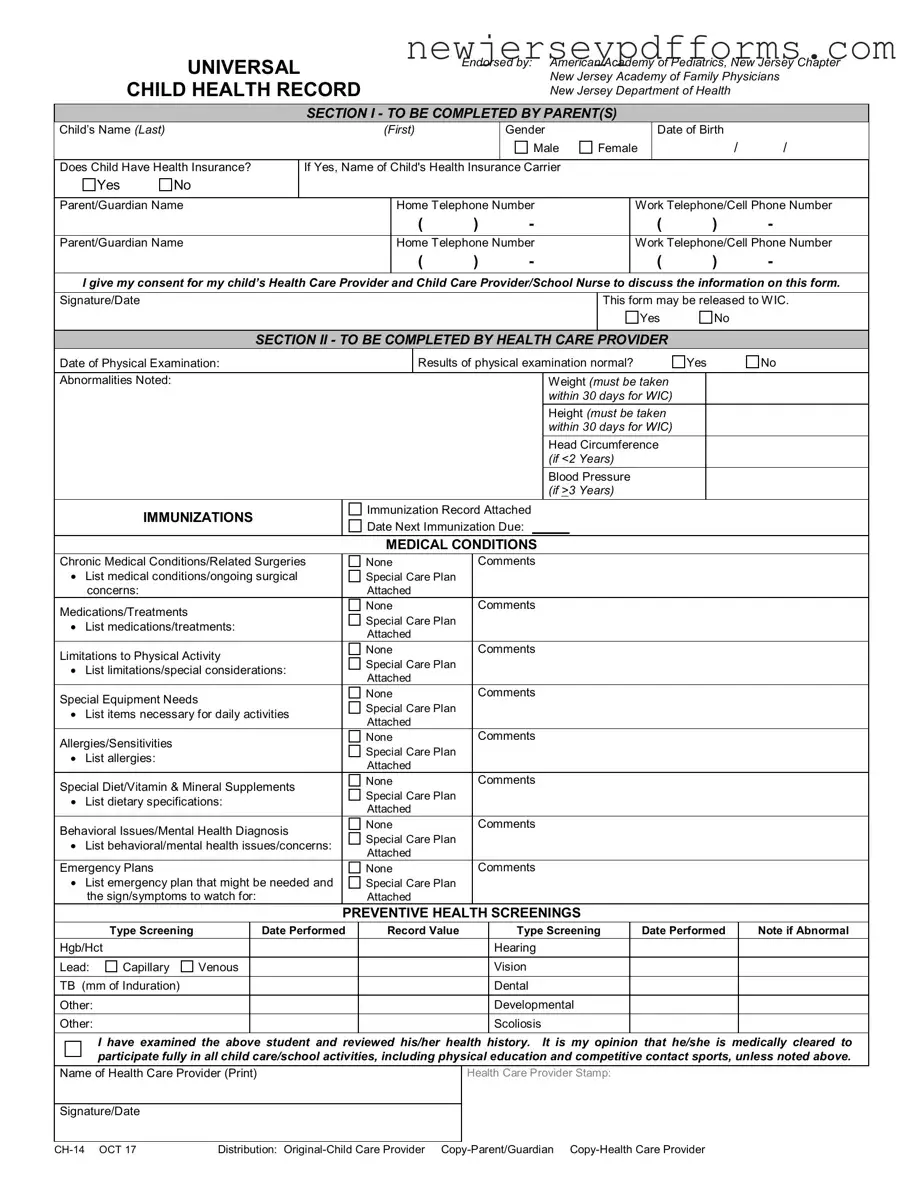The NJ Child Form shares similarities with the Universal Child Health Record, which is also endorsed by health organizations. Both documents serve as comprehensive health records for children, designed to track essential health information. They require details about the child's identity, including name and date of birth, as well as parental contact information. Furthermore, both forms include sections for health care providers to document physical examinations, immunizations, and any medical conditions. This ensures that caregivers and schools have access to vital health data, promoting the well-being of children in various settings.
Another document similar to the NJ Child Form is the WIC (Women, Infants, and Children) Program Certification Form. This form is used to determine eligibility for nutritional assistance for low-income families. Like the NJ Child Form, it collects information about the child’s health status, including weight and height measurements. Both documents emphasize the importance of health screenings and provide a platform for health care providers to note any special dietary needs or medical concerns. This alignment helps in ensuring that children receive the necessary resources and support for their growth and development.
The Early Intervention Evaluation Report also bears resemblance to the NJ Child Form, particularly in its focus on assessing a child's developmental milestones. This report is used for children who may need additional support due to developmental delays. Both documents require detailed information about the child's health history and any concerns noted by caregivers. Additionally, they include evaluations conducted by health professionals, ensuring that children receive appropriate interventions and services tailored to their needs.
In addition to the various health forms used for children, it's also important to understand the significance of legal documents like the Texas Bill of Sale form, which serves to formalize the transfer of ownership of personal property. This document acts as essential evidence of a transaction, ensuring that both buyers and sellers are protected under the law. For those needing a template for such transactions, the PDF Document Service provides a useful resource to facilitate this process.
Similarly, the Child Medical Statement for Child Care Centers serves a parallel purpose. This form is required for children enrolled in daycare or preschool programs and documents a child's health status. Like the NJ Child Form, it includes sections for health care providers to report on immunizations, physical examinations, and any medical conditions. This ensures that child care centers are informed about each child's health needs, facilitating a safe and supportive environment for all children in their care.
Lastly, the School Health Record is another document akin to the NJ Child Form. This record is maintained by schools to track student health information throughout their educational journey. Both forms require parental consent for the release of health information and include sections for documenting immunizations, physical exams, and any chronic health issues. By keeping comprehensive health records, schools can better manage student health and ensure that appropriate accommodations are made for those with specific medical needs.

